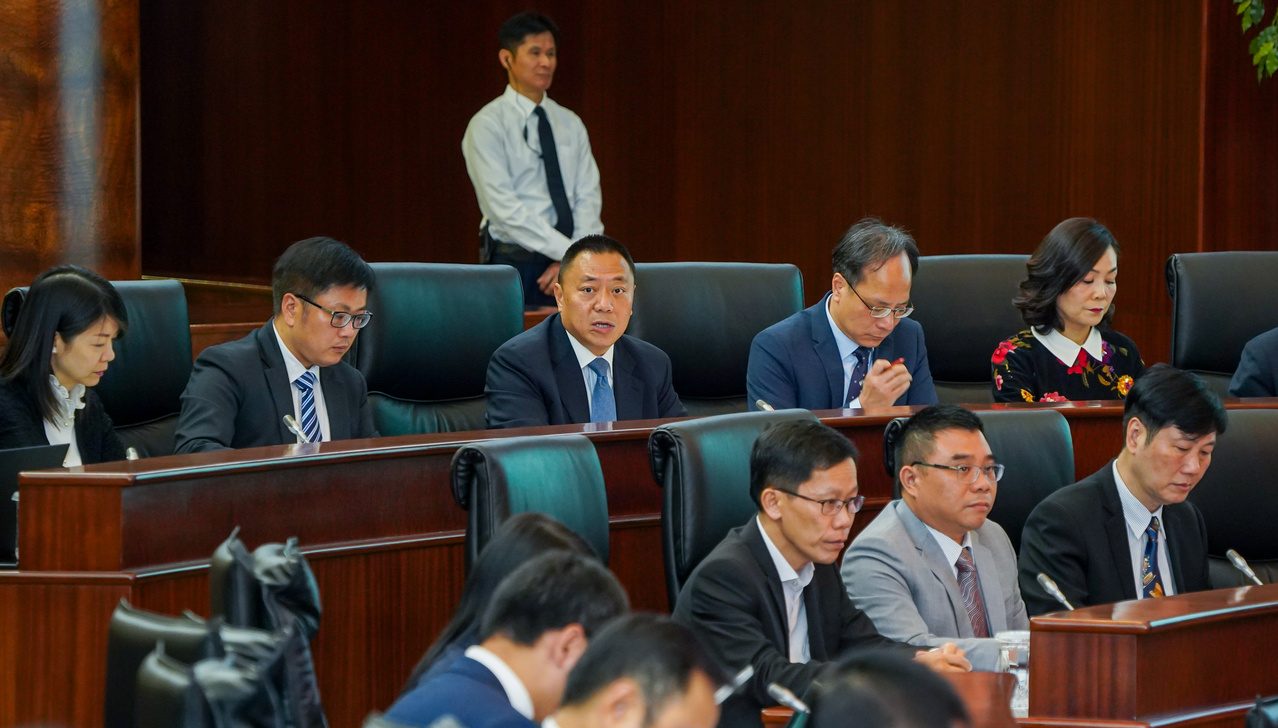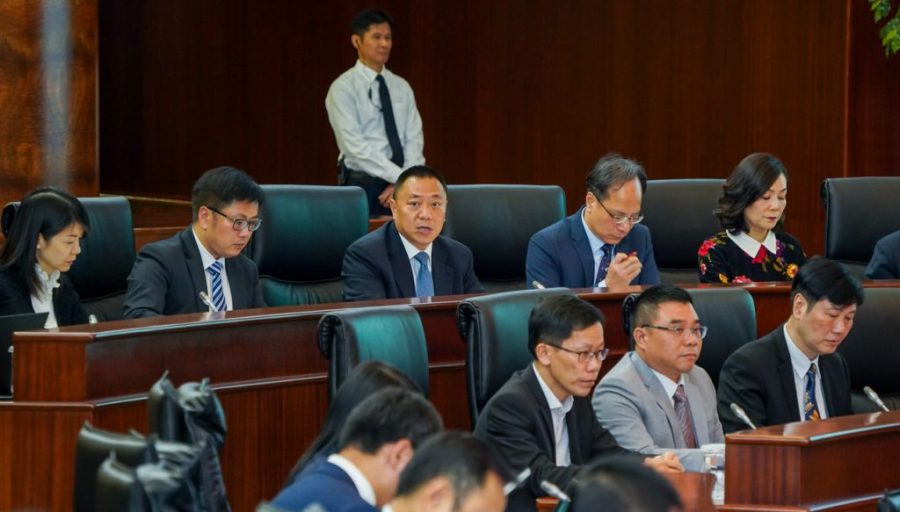The Legislative Assembly (AL) on Monday unanimously passed the government’s 2020 budget bill, according to which the government expects a total expenditure of 100.69 billion patacas next year, 2.65 billion patacas less than this year’s budget, down 2.6 per cent.
According to the bill, the government expects total receipts of 122.7 billion patacas next year, 312 million more than this year’s budget, up 0.3 per cent.
As a result, the bill expects a surplus of 22 billion patacas next year.
The outline of the bill was passed by a plenary session last month, after which it was reviewed by the legislature’s 2nd Standing Committee, before being resubmitted to yesterday’s plenary session for its final article-by-article vote.
Secretary for Economy and Finance Lionel Leong Vai Tac and several officials of his portfolio attended yesterday’s plenary session during the bill’s article-by-article debate and vote.
According to the bill, the government expects its revenue from direct gaming taxes to amount to 91 billion patacas next year, the same as the amount budgeted for this year. Macau’s casino operators pay 35 percent of their gross gaming revenues as direct tax to the government.
The bill proposes to raise public servants’ salaries from 88 patacas to 91 patacas per salary point, an increase of 3.41 per cent, effective from next month.
Public servants’ salaries were raised by 3.53 per cent in January this year, from 85 patacas to 88 patacas per salary point.
In the first 10 months of this year, Macau’s officially measured inflation rate amounted to 2.82 per cent.
According to the bill, the government expects to spend 22.32 billion on a raft of its long-standing subsidies and allowances to various segments of civil society next year, such as the “wealth-sharing” handouts, Central Provident Fund cash injections, health vouchers, residential electricity subsidies, continuing education subsidies, low-income subsidies, allowances for pupils and students, old-age pensions, old-age allowances, disability allowances, and allowances for underprivileged households.
According to the bill, the government proposes the continuation of a string of its existing tax allowances, exemptions and incentives for next year, involving 3.42 billion patacas.
The presentation of the 2020 budget bill by the government and its passage by lawmakers happened before the commencement of the new government, which will be sworn in on Friday. The outgoing government has indicated that the new government is slated to present a bill to revise the 2020 budget, which was passed on Monday, in the first quarter of next year.
During yesterday’s plenary session, non-establishment directly-elected lawmaker Sulu Sou Ka Hou asked whether the government would push ahead with studying possible legislation regulating the operation of government-owned companies.
According to the Macau Post Daily, in his reply, Leong, who has not been reappointed to the new government, did not specify a timetable on the matter. He said that it was a consensus in civil society that the operation of government-owned companies should be more transparent and subject to strengthened supervision. He said that the government plans to first formulate internal guidelines for such companies to follow and that the government was still drafting the guidelines.






